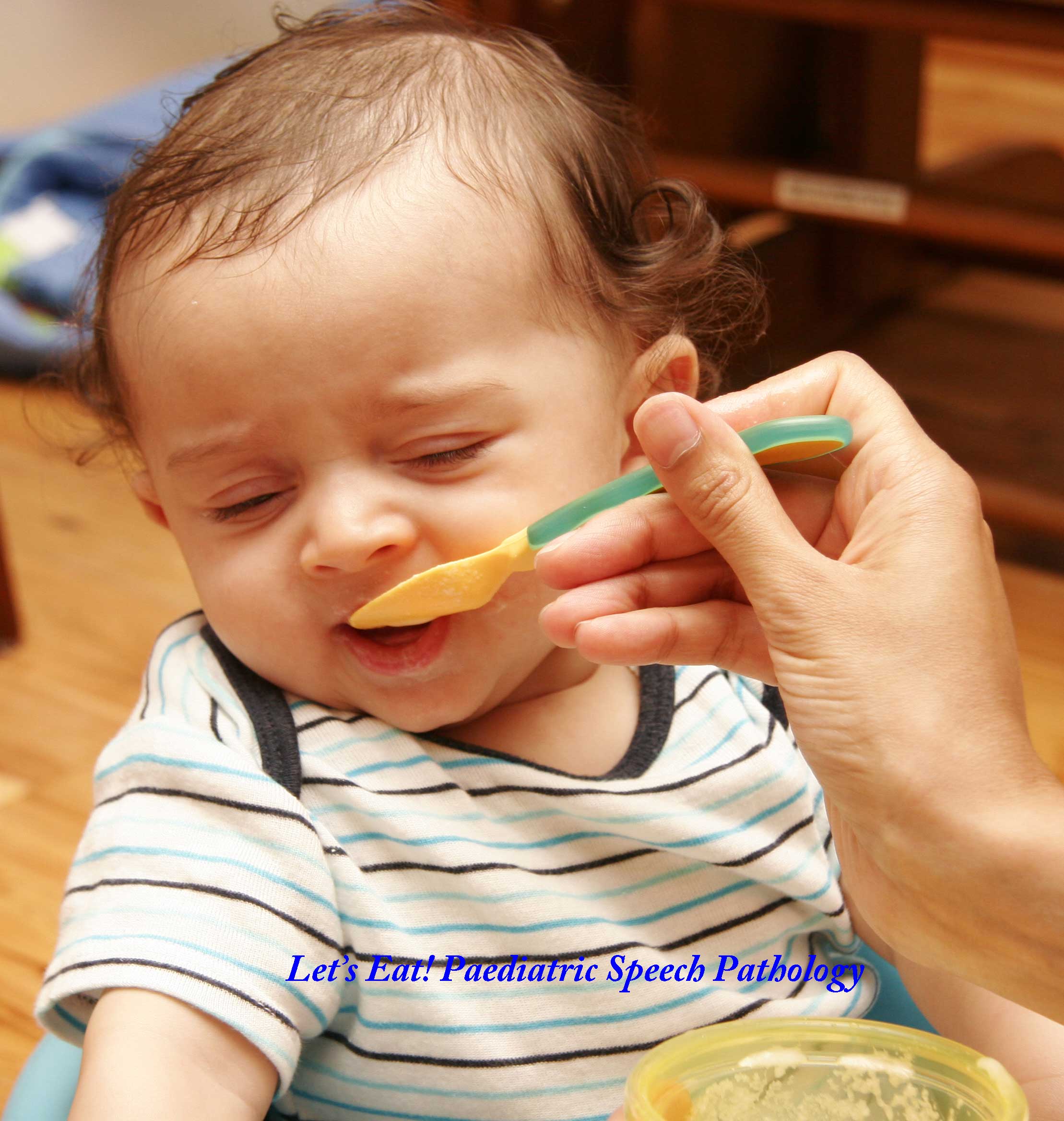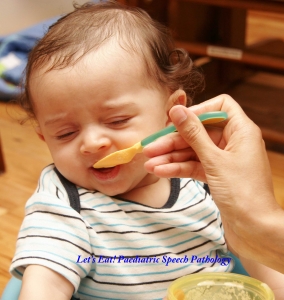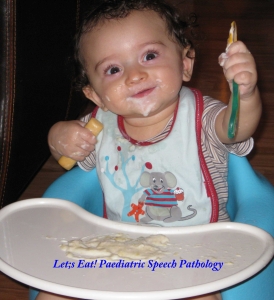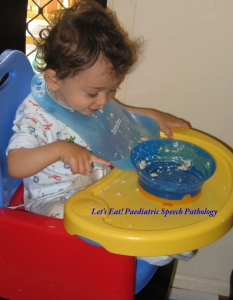
Quick – help him, he is choking!! Do you feel like you are saying this inside your head or even out aloud with your toddler during meals? It is a very common fear especially for first time mums. I know when my toddler gagged at 6 months, I had two voices speaking inside my head – a mum and a Feeding Speech Pathologist.
So what is the difference?
* Gagging
– audible, noisy sound from the back of your toddler’s mouth sometimes accompanied with coughing (body’s protective reaction)
– Some toddlers may look distressed and some won’t
– It is a normal protective reflex that we are born with (although interestingly enough some people don’t have a gag reflex)

* Choking
– Confusing because it also involves coughing, wheezing and gagging
– Accompanied with difficulty breathing
– Toddlers often make a whistling or “crowing” sound or even no noise at all – IT CAN BE SILENT and that’s why supervision is crucial with meals
– Their face, neck, lips, fingernails can also start to turn blue
Why do toddlers gag?
It is a protective mechanism that babies are born with. As they begin solids, this reflex starts to move further back into their mouth. Babies are also experimenting with how much to put into their mouth and how much they need to chew before swallowing, this learning process can cause gagging. The most important thing is to always supervise your toddler, if they are gagging, then watch them closely (without over reacting as this will stress them out), if they clear it, then reassure them (and give them a drink if need be), most babies will gag, spit the food out and then put it straight back into their mouth. If you over react, jump up and rush over, your baby will get anxious and might even inhale causing the food to go down their airway. Watch them closely, wait and then see if you need to react. Some babies are just learning about how to manage solids…
The most crucial difference here is what to do if they are choking? Well, I’m sorry to say but I can’t advise you on what to do- what I can advise you is to be prepared for this event!!! As a mother, I know that my toddlers gagged a few times when they started their solid experience. But what I did before hand was get educated – I took my husband and myself off to a First Aid Training course so that if my kids every choked, we would be prepared in knowing what to do.

St John’s Ambulance runs a great “caring for kids” course that really prepared us as parents for common kid injuries and incidents, I highly recommend this course for you as parents but also grandparents/carers who take care of your children when you are not around. It is not accredited so if you are a professional working with kids (particularly in feeding) then I recommend you do the full First Aid Training course.
Lastly, always have the phone handy if you ever need to dial 000 and try to keep calm. I have also printed and stuck the handy St John’s Ambulance First Aid factsheets on our fridge and have them in my therapy folder for work use. They are useful print outs but honestly, the best method is being prepared – do your first aid training!
If your child continues to gag (not choke!) on foods or specific textures, they might be hypersensitive and would benefit from a Speech Pathology feeding assessment. This is where we would assess their oral -muscle and swallow skills and then observe them eating a range of textures. Babies who are gagging and choking on milk (bottle or breast) might not be coordinating their suck-swallow-breath pattern and will require a feeding suck assessment. Children who have tone issues, developmental delays, reflux or born premature seem to be a bit more sensitive with their gag reflexes. If in doubt, get a feeding speech pathology assessment as we will be able to assist you with some basic ideas that can help and will prevent any long term food aversive issues down the track.

So top tips?
1. Do some basic first aid training like Caring for Kids with St John’s Ambulance
2. Speak to your GP if you are concerned that your child is gagging on food, particularly if it has delayed their transition to solids and they are not putting on weight.
3. Contact a Paediatric Feeding Speech Pathologist like “Let’s Eat! Paediatric Speech Pathology” for a feeding assessment and plan.
Hope you found that useful in clarifying this tricky issue.
Until next time
Val
This website and information on this blog post is provided for educational purposes. It is not meant or intended to replace Speech Pathology assessment and management nor medical or nutritional care for a child. It is recommended that you discuss any concerns or questions you might have with your Speech Pathologist and managing Doctor and develop an individualised team plan specifically for your child.
About the author of this blog post
Valerie is an Australian based Speech Pathologist with 10 years experience in Paediatric Feeding. She has recently opened a private practice called ‘Let’s Eat! Paediatric Speech Pathology’ that caters for Newcastle based babies and children with feeding difficulties and early intervention speech and language delays. Valerie is passionate about working in the area of paediatric feeding and special needs and has been involved in the teaching and training of Australian Speech Pathology University students and allied health professionals. You can find out more about Valerie Gent and ‘Let’s Eat! Paediatric Speech Pathology’ via her website www.letseatspeech.com.au and Facebook page www.facebook.com/LetsEatPaediatric SpeechPathology or email her on valerie.gent@letseatspeech.com.au
